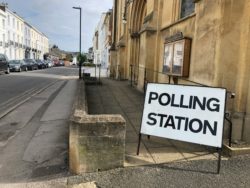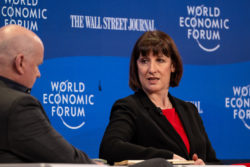By Professor John R. Bryson Professor of Enterprise and Economic Geography, The Department of Strategy and International Business, Birmingham Business School Are you as tired of this election as I am? This question reminds me of Samuel Johnson’s statement that when one is tired of London, one is tired of life. But what makes UK … Continue reading “Ignoring Election Caterwauling and the Benefits of Voting for Candidates rather than Political Parties”
General Election 2024: Whatever happened to levelling up?
By Abigail Taylor, Research Fellow & Johannes Read, Policy and Data Analyst, City-REDI, Birmingham Business School The phrase ‘levelling up’ – which refers to tackling inequality between places – has been cast aside in the 2024 election campaign. There has been relatively little detailed discussion about addressing regional inequalities by any of the main parties. … Continue reading “General Election 2024: Whatever happened to levelling up?”
The future of devolution under a new government – a manifesto guide
By Associate Professor Rebecca Riley City-REDI, Birmingham Business School Each party’s stance on place and devolution reflects their broader political philosophies, with Labour and the Conservatives focusing on managed devolution within a united framework, while the Liberal Democrats, Greens, SNP, and Plaid Cymru push for more substantial devolved autonomy and constitutional reform. Reform UK doesn’t … Continue reading “The future of devolution under a new government – a manifesto guide”
Economic Stability and Uncertainty: UK Economic Futures Post General Election 2024
By Professor John R. Bryson Professor of Enterprise and Economic Geography, The Department of Strategy and International Business, Birmingham Business School One claim that is made by parties in opposition is that Britain is broken and needs to be fixed. This is political rhetoric. For example, to Rachel Reeves, Labour’s Shadow Chancellor of the Exchequer, … Continue reading “Economic Stability and Uncertainty: UK Economic Futures Post General Election 2024 “
General Election 2024: what the manifestos don’t say about the housing crisis
By Dr Jacob Salder, Department of Management, Birmingham Business School Earlier this week, Dr Anandadeep Mandal wrote about what the manifestos say about the housing crisis this election, but I want to focus on what has been left unsaid. Last year I finally took the plunge and bought a house. Generally considered a landmark moment … Continue reading “General Election 2024: what the manifestos don’t say about the housing crisis”
Closing the gender pay gap ‘once and for all’
By Dr Fuk Ying Tse – Assistant Professor in Organisation, Work and Employment, University of Birmingham Dr Manuela Galetto – Associate Professor in Employment Relations, University of Warwick In an exclusive interview with the Guardian on 20 June 2024, Rachel Reeves, the contesting Chancellor of the Labour Party, pledged to close the gender pay gap … Continue reading “Closing the gender pay gap ‘once and for all’”
What’s the problem with asking teachers to clean kids’ teeth?
By Dr Kathryn Spicksley British Academy Postdoctoral Fellow, Department of Education and Social Justice, University of Birmingham The polls tell us that it looks increasingly likely that a Labour government will be elected in July. For primary school teachers, this change might bring about an additional responsibility; Keir Starmer has proposed to introduce teacher-led toothbrushing … Continue reading “What’s the problem with asking teachers to clean kids’ teeth? “
Why Labour’s promise of 6,500 teachers is not likely to work
By Professor Beng Huat See School of Education, University of Birmingham Labour’s promise of 6,500 new teachers is unlikely to solve the chronic teacher shortage. The issue extends beyond just a lack of teachers or interested individuals. Despite various financial incentives and the Teacher Recruitment and Retention Strategy—which aims to reduce workload, improve school culture, … Continue reading “Why Labour’s promise of 6,500 teachers is not likely to work”
Mind the (wealth) gap
By Dr Huw Macartney Department of Political Science and International Studies, School of Government, University of Birmingham Three million emergency food parcels were handed out in the UK over the past 12 months; the number of people living in absolute poverty is predicted to increase by 300,000, to almost 12 million, in 2024; and 17 … Continue reading “Mind the (wealth) gap”
How stable is India’s new government?
By Professor Aditya Goenka Department of Economics, Birmingham Business School On 4 June 2024 the parliamentary election results were announced for India after a 7 stage elections process held over 44 days. 642 million votes were cast of which 312 million were women. 543 seats were up for grabs. The incumbent Bharatiya Janata Party (BJP) … Continue reading “How stable is India’s new government?”











